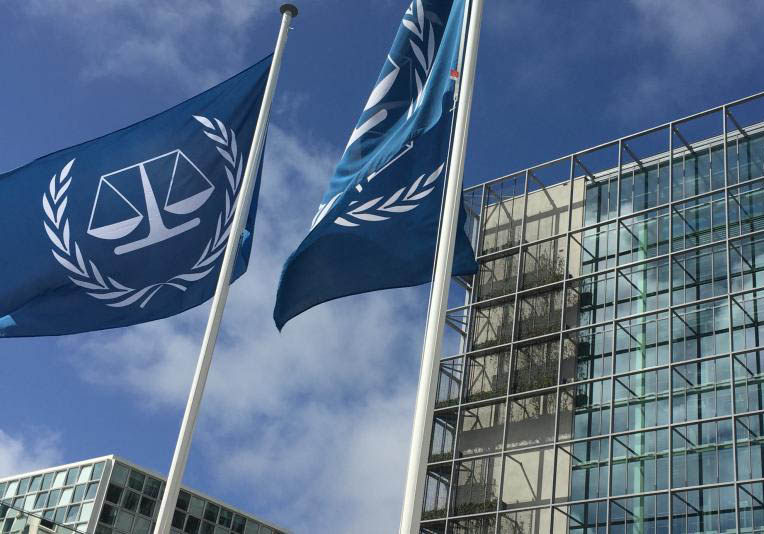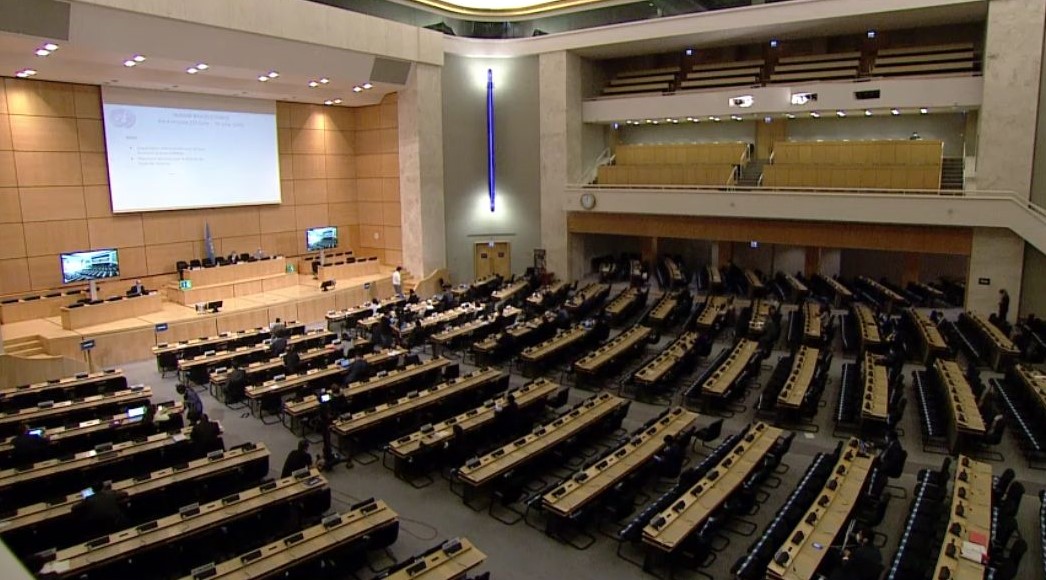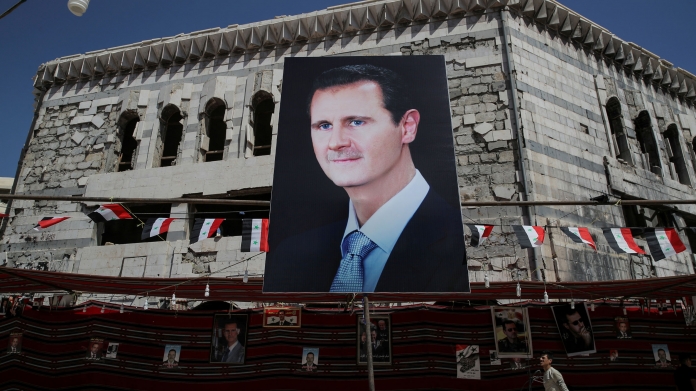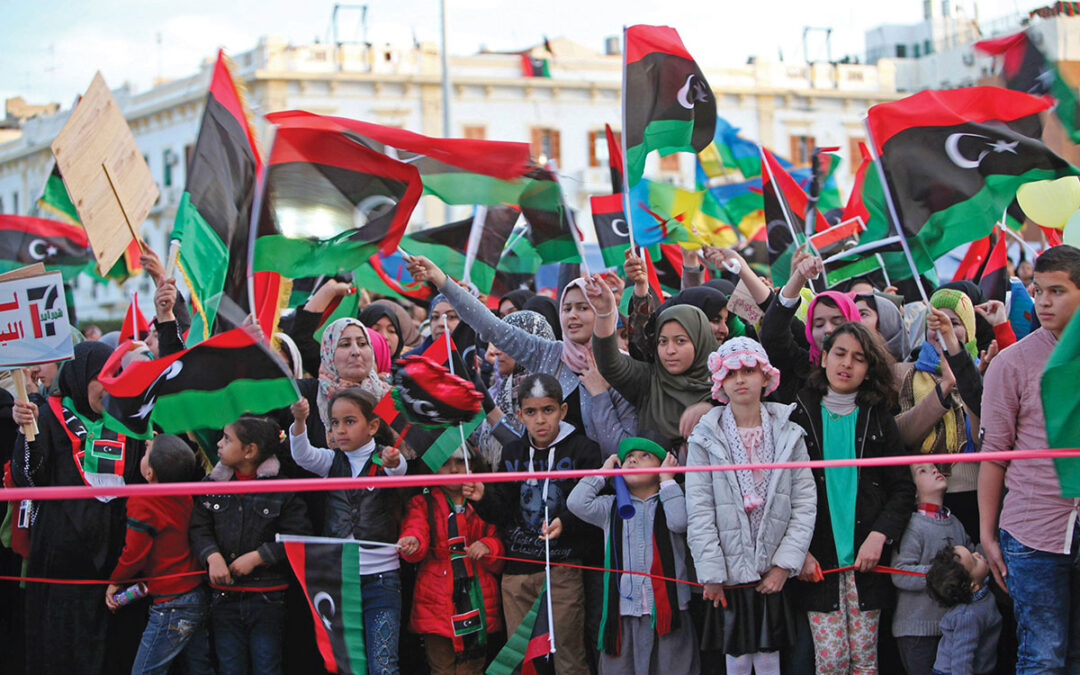
Mar 4, 2021 | News
Israeli and Palestinian authorities should immediately grant the International Criminal Court unhindered access to Palestinian territory to investigate alleged crimes under international law committed by all parties to the conflict, the International Commission of Jurists said today.
The International Criminal Court’s prosecutor yesterday announced the initiation of an investigation into “war crimes [that] have been or are being committed in the West Bank, including East Jerusalem, and the Gaza Strip.”
“Israel, the United States and other States must refrain from any efforts undermining the Office of the Prosecutor and the integrity of its investigation,” said Said Bearbia, ICJ’s MENA programme director. “Rather, they should comply with universally recognized norms on the independence and impartiality of judges and prosecutors.”
The ICJ calls on all states and concerned organizations to cooperate fully with and provide any necessary assistance to Office of the Prosecutor in carrying out its investigation.
The Israeli and Palestinian authorities, in particular, should grant the Office of the Prosecutor and its members unhindered access to all Palestinian territory without delay, and allow them to visit sites, meet and speak freely and privately with victims and witnesses, and access any relevant documentation or records.
It is critical that the ICC’s investigators and prosecutors, like any other investigators and prosecutors, should be able to perform their professional functions independently, impartially, diligently and without intimidation, hindrance, harassment or improper interference.
“The ICC investigation offers a unique opportunity to begin addressing the structural impunity that prevails over past and ongoing crimes under international law in Palestine,” Benarbia added. “It’s a crucial initial step in the realization of the victims’ rights to justice, truth and reparations.”
On 5 February 2020, the ICC decided it can assert its jurisdiction over serious crimes alleged to have occurred in the State of Palestine since 13 June 2014.
On 16 March 2020, the ICJ submitted amicus curiae observations in support of the Court’s territorial jurisdiction.
Find the Press Release in Arabic here: PalestineIsrael-PR-ICC-ARA2-2021
Contact:
Said Benarbia, Director, ICJ Middle East and North Africa Programme; t: +41 22 979 3817 e: said.benarbia(a)icj.org
Asser Khattab, Research and Communications Officer, ICJ Middle East and North Africa Programme, asser.khattab@icj.org

Feb 25, 2021 | Advocacy, Non-legal submissions
The ICJ today addressed the UN Human Rights Council in the Interactive Dialogue on the Report of the Office of the High Commissioner for Human Rights on Promoting reconciliation, accountability and human rights in Sri Lanka.
The statement reads as follows:
“Madam President,
The ICJ welcomes the comprehensive OHCHR report on Sri Lanka.
We share OHCHR’s observation that domestic initiatives for accountability have repeatedly failed to produce results, ‘more deeply entrenching impunity, and exacerbating victims’ distrust in the system.’ [A/HRC/46/20, pp. 52]
The ICJ has continuously observed that Sri Lanka’s incapacity and unwillingness to pursue accountability for crimes under international law is deep-rooted and longstanding.
The extensive militarization of civilian functions, the reversal of constitutional safeguards, the obstruction of the rare cases of domestic criminal accountability and the deteriorating human rights situation all point to a systemic culture of impunity that will only worsen in the years to come.
Sri Lanka’s failure to establish a hybrid accountability mechanism in the five years since the adoption of Resolution 30/1 demonstrates a complete lack of political will to hold perpetrators accountable. The rights of the victims of human rights violations cannot be ignored any longer.
The ICJ endorses all of OHCHR’s recommendations, particularly the call for international and external accountability processes, whether before the ICC or through the exercise of universal jurisdiction by other States.
We further call for enhanced monitoring and reporting on the ground situation and for the establishment of a mechanism for the collection and preservation of evidence for future prosecution.
Madam High Commissioner, how can OHCHR ensure that the victims’ call for accountability is effectively fulfilled?
I thank you.”
Contact:
Massimo Frigo, ICJ UN Representative, e: massimo.frigo(a)icj.org, t: +41797499949

Feb 25, 2021 | News
The verdict of the Higher Regional Court in Koblenz, Germany, convicting a former Syrian official of crimes against humanity, is a significant breakthrough in the fight against impunity for the crimes committed in Syria over the last 10 years, the ICJ said today.
“For the first time since the beginning of the Syrian regime’s bloody, rampant and relentless repression, a Syrian official has finally been held to account for his participation in the regime’s crimes,” said Said Benarbia, Director of the ICJ’s MENA Programme. “While this may seem a small token for victims, it is a resounding warning for other Syrian officials that justice may soon catch up with them.”
On 24 February 2021, Eyad A. was found guilty of aiding and abetting crimes against humanity, including torture and arbitrary deprivation of liberty, and sentenced to four and a half years in prison. Among other things, his conviction is related to the detention of at least 30 Syrians after anti-government demonstrations erupted in March 2011.
“This is an important step in the fight for justice for victims and survivors of gross human rights violations in Syria,” said Bernabia.
Eyad A. was prosecuted together with Anwar R., the former director of investigations at Branch 251 — a Syrian intelligence branch in Damascus notorious for subjecting detainees to systematic torture and other ill-treatment.
Anwar R. was charged with supervising the systematic torture of over 4,000 people, which resulted in the death of 58 people between 2011 and his defection in 2012. His trial is still ongoing.
The proceedings against Eyad A. and Anwar R. were conducted under the principle of universal jurisdiction, which allows Germany and other States to prosecute an accused person for serious crimes under international law, even when such crimes have been committed abroad and neither the victims, nor the accused are nationals of that country.
“States must act individually and collectively to fill the accountability gap in Syria,” added Benarbia. “They must support United Nations accountability mechanisms, including the IIIM, and seek out, prosecute and punish those responsible for the atrocities committed in the country.”
Contact
Said Benarbia, Director, ICJ Middle East and North Africa Programme, t: +41-22-979-3817; e: said.benarbia(a)icj.org
Asser Khattab, Research and Communications Officer, ICJ Middle East and North Africa Programme, e: asser.khattab(a)icj.org
Download
Syria-Impunity-Statement-2021-ENG (in English)
Syria-Impunity-Statement-2021-ARA (in Arabic)

Feb 17, 2021 | News
17 February 2021 marks the tenth anniversary of the Libyan revolution.
Back then, protestors had taken to the streets calling for an end to Gadhafi’s authoritarian rule: a regime beset by the commission of widespread and systematic gross human rights violations, including arbitrary arrest and detention; enforced disappearances; torture and other ill-treatment; the oppression of women, minority groups, political dissidents and government critics; and the curtailment of freedom of expression, association and assembly.
Libyans who supported the 2011 revolution hoped it would usher in a nascent democracy and present an opportunity to address the country’s bleak legacy. A decade on, however, the pursuit of justice and accountability remains unfulfilled, and the cycle of impunity unbroken, as a multitude of State actors and armed groups continue to perpetrate crimes under international law, including against thousands of migrants, refugees, asylum seekers and stateless persons.
Attacks against human rights defenders, lawyers and activists, including extrajudicial executions, enforced disappearances and torture, are pervasive, particularly so against women. The post-2011 period has also witnessed an increasingly brutal crackdown on civil society, journalists and bloggers, in addition to the violent suppression of peaceful protests through excessive use of force and arbitrary arrests.
Against a backdrop in which domestic accountability efforts are hindered by cycles of violence, weak and ineffective law enforcement agencies, and by the arbitrary exercise of policing and detention powers by armed groups, international efforts to fight impunity in the country are underway. The Office of the Prosecutor of the International Criminal Court (ICC) is currently investigating some of the crimes under international law committed after 2011, including war crimes committed in the context of armed conflicts. However, certain individuals against whom ICC arrest warrants have been issued, including Mahmoud Al-Werfalli, remain at large.
In June 2020, the UN Human Rights Council established an International Fact-Finding Mission (FFM) tasked with investigating violations and abuses of international human rights law and international humanitarian law committed by both State and non-State actors in Libya since 2016. The FFM’s work will be key in addressing impunity in the country and will complement national efforts to address the accountability vacuum.
The country’s interim executive, selected by the Libyan Political Dialogue Forum on 5 February 2020, and any future elected government must put the peoples’ demands for justice and accountability at the forefront. In particular, the Libyan authorities must commit to implementing a transitional justice process, neglected so far, that could genuinely pursue accountability, and guarantee full participation of victims and the public in the process, and thereby realize the right to truth and reparations of the victims of past and ongoing human rights violations and abuses.
To this end, the International Commission of Jurists and the Defender Center for Human Rights call on the Libyan authorities to:
- Guarantee freedom of assembly, association and expression of all persons, and protect human rights defenders, activists and journalists from reprisals and unwarranted prosecutions;
- Protect all persons from arbitrary arrest and detention, extrajudicial executions, torture and other ill-treatment, and enforced disappearances;
- Effectively investigate and prosecute crimes under international law, and ensure that no amnesty, immunity or statute of limitations apply to such crimes;
- Reform the security sector to ensure effective civilian oversight over security and armed forces;
- Set up a concrete plan to disband and disarm all militias and armed groups;
- Guarantee the independence of the judiciary, the respect of international fair trial standards, and refrain from trying civilians before military tribunals;
- Protect refugees, asylum seekers, stateless persons and migrants in line with international law;
- Ensure that the right to an effective remedy and adequate reparations are granted to victims of human rights violations;
- Cooperate fully with the ICC and support their efforts to obtain custody of any suspects;
- Provide the FFM with full support and access to victims, witnesses and any other interested persons throughout Libya’s territory.
Download
Libya-Impunity-Joint-Statement-2021-ENG (English)
Libya-Impunity-Joint-Statement-2021-ARA (Arabic)
Contact
Said Benarbia, Director, ICJ Middle East and North Africa Programme, t: +41-22-979-3817; e: said.benarbia(a)icj.org
Asser Khattab, Research and Communications’ Officer, ICJ Middle East and North Africa Programme; e: Asser.Khattab(a)icj.org

Jan 23, 2021 | News
The ICJ stated today that a newly appointed Commission of Inquiry tasked to review reports on past human rights and humanitarian law violations was unlikely to bring justice to victims of conflict era atrocities.
On 21 January 2021, Sri Lankan President Gotabaya Rajapaksa appointed a three-member Commission of Inquiry (CoI), headed by sitting Supreme Court Judge A.H.M. Nawaz to assess the findings and recommendations of preceding CoIs and Committees on human rights violations, serious violations of international humanitarian law and other such serious offences.
“Sri Lanka has an appalling track record on accountability in relation to toothless inquiry mechanisms.” said Ian Seiderman, ICJ’s Legal and Policy Director. “the tendency to set up these kinds of processes just ahead of sessions the UN Human Rights Council raises the suspicion that the announcement is targeted to deflect robust action by the Council beginning next month”
Sri Lanka is due to be taken up at the 46th session of the UN Human Rights Council on 24 February 2021, where the UN High Commissioner for Human Rights will present her report on Sri Lanka’s implementation of Council Resolution 30/1.
The decision to set up this COI was first announced in February 2020, by the Minister of Foreign Affairs at the 43rd Session of the UN Human Rights Council when he declared the Government’s withdrawal of support for the process under Resolutions 30/1, 34/1 and 40/1.
The Commission is tasked with the responsibility of identifying the “manner in which the recommendations have been implemented so far in terms of the existing law and what steps need to be taken to implement those recommendations further in line with the present Government policy.” It has been given a six-month mandate.
COIs and similar bodies established by successive Sri Lankan governments have been ineffective and deeply deficient in terms of their mandate, functions and independence. As the ICJ has previously documented, such mechanisms have largely been partisan mechanisms for punishing political opponents or for shielding perpetrators and institutions from responsibility.
The ICJ called upon the UN High Commissioner for Human Rights and the Member States to acknowledge the Sri Lankan Government’s categorical inability and unwillingness to ensure accountability domestically and urges the Council to explore viable international alternatives to ensure justice for victims of gross human rights violations.
Contact
For questions and clarifications, please contact Osama Motiwala, Communications Officer – osama.motiwala(a)icj.org









